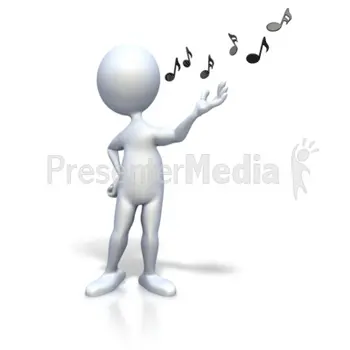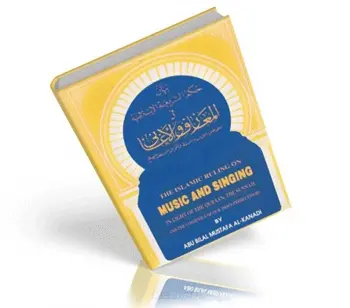All praise is due to Almight God, Allah. We praise Him and seek His help and forgiveness. And we seek refuge in Allah from the evil of our own selves and from our wicked deeds. Whosoever has been guided by Allah, there is none to misguide him. And whoseover has been misguided by Allah, none can guide him. I bear witness that there is no other god except Allah, alone, without partner or associate. And I bear witness that Muhammad is His servant and messenger. May Allah, the Exalted, bestow His peace and blessings on Prophet Muhammad, upon his good and pure family, as well as upon all of the noble companions and upon those who follow them in righteousness until the Day of Reckoning.
Verily, the most truthful speech is the Book of Allah, and the best guidance is the guidance of Muhammad (Allah’s blessings and peace be upon him); while the worst affairs are novelties, for every novelty is a blameworthy innovation. Every innovation (in matters of religion) is misguidance and every misguidance is in the Fire.
The legality of music and singing in the Islamic shari’ah (the divinely-revealed law) is an issue which is hotly debated among individuals and scholars in Islamic societies of our present day. Arriving at the correct view requires unbiased, scholarly research of the available literature which must be supported by authentic, decisive proof.
A considerable amount has been said and written both for and against this subject, and the proliferation of doubt and confusion necessitates another more critical, meticulous analysis and assessment of this whole matter, in order for one to come to a clear, decisive conclusion which leaves not the least bit of doubt in the mind of the reader.
In hope of acheiving such a difficult and lofty goal, I have applied a distinctive method which I trust, by Allah’s leave, will succeed in achieving these treasured aims and objectives.
Firstly, I analysized and assessed the claims made by differing factions that certain Quraanic verses support or prohibit 
I pray that Allah grants success in this endeavor, accepting it as a work done purely for His sake and bestowing upon us and our brethren in faith, sincerity and guidance to His straight path.
Abu Bilal Mustafa Al-Kanadi
Ramadaan 1406/May 1986
Makkah Al-Mukarramah
ANALYSIS OF QURAANIC TEXTS AND COMMENTARIES
It is vital that one critically assesses the extent to which certain verses of the Quraan allegedly stand as proof for or against the legality of music and singing. Some of those verses which might be misconstrued to indicate that music, singing, dancing etc are permissible, are mentioned first. They are then followed with a sample of verses, which certain scholars have claimed to be proof of prohibition regarding this issue.
VERSES CLAIMED TO INDICATE THE LEGALITY OF MUSIC
The following verses regarding the Psalms of Dawood (upon whom be peace) is case in point.
THE FIRST VERSE:
{ And verily,We did favor some of the prophets over others, and to Dawood We gave the Psalms.}(*1)
How does this verse purport to be proof for those who claim legality? It is a common misconception of certain Muslims-especially those having a western background or living in the west-that Dawood (peace be upon him)composed the Psalms and sang them to the accompaniment of music.(*2) There are even some commentators of English translations of the Quraan who fall prey to the same error. For example, Abdullah Yusuf Ali comments on this verse saying, “The spiritual gifts with which the Prophets came, may themselves, take different forms according to the needs of the world and the times in which they lived, as judged by the wisdom of God. A striking example here given is the gift of song and music as given to David…(*3) The fact is that the Psalms were not composed by Prophet Dawood (upon whom be Allah’s peace and blessings), but rather were revealed to him(*4) by Allah, the exalted, as is clearly stated in the Quraan.(*5) Additionally, nowhere in the Quraan or in the authentic traditions(*6) is there any support for this accompanying the psalms with musical instruments .
In order to properly understand the true nature of the Psalms (Az-Zaboor), one must look to some of the dependable Quraanic commentaries (tafaseer). Ibn Katheer (Allah’s mercy be upon him), explains the meaning of the term Az-Zaboor saying, “Az-Zaboor is the name of the book revealed by Allah to Dawood (peace be upon him).”(*7) Al-Aloosi further confirms this saying, “Az-Zaboor is the name of the book sent down to Dawood (upon whom be peace); it was revealed to him gradually, by installments.”(*8)
As to the nature of these psalms, Al-Qurtubi states, “Az-Zaboor is the book of Dawood, consisting of one hundred and fifty chapters; however, it contained no rulings of divine law on matters of prohibited or allowed things. Rather, it consisted of words of wisdom and admonishment.”(*9) Al-Aaloosi adds to this description that “the Zaboor also contained divine praises and glorification of Allah, (exalted be His praise).”(*10)
Prophet Dawood’s captivating, melodious voice was exceedingly beautiful and effective. When he recited the Zaboor, men, jinn, birds and wild animals gathered around him.(*11)
THE SECOND VERSE:
Some ignorant people claim that the following text regarding Prophet Ayyoob(Job), whom Allah tested with various trials and tribulations, permits music and dancing:
{ Allah, the Exalted and Mighty, commands His messenger, Muhammad in the Quraan, “And recall Our servant, Ayyoob, when he cried unto his Lord, ‘Verily, Satan has afflicted me with distress and suffering.’ It was said unto him, ‘Strike the ground with your foot; here is a spring for a cool bath and water to drink.‘}(*12)
In these verses Allah, the Glorious and Exalted, directs His Prophet, Ayyoob, to strike his foot upon the ground, whereupon a spring came forth. He bathed in its cool, soothing water which healed the disease afflicting the outer surface of his body. He also drank from the spring which removed the illness that afflicted his innermost body. Thus, after putting His faithful servant, Ayyoob, to excruciating tests and trials, Allah Ta’aala judges him to be firm, patient and unwavering in his faith, saying: {Truly, We found him firm in patience and constancy; how excellent a slave. Verily, he was ever turning in repentance (to his Lord).}(*13)
Regarding this verse, Al-Qurtubi mentions in his tafseer that certain ignorant ascetics and common Sufis have sought proof for the permissibility of dancing in Allah’s saying to Ayyoob, { Strike the ground with your foot.}(*14) He relates the reply of some scholars to such baseless claims. Abul-Faraj Ibnul-Jowzi says, “This is an empty argument. Had there been a command for the striking of the foot as an act of joy, there might be some slight excuse for such a view; however, the fact is that the command for striking the ground with the foot was in order to get the spring water to flow from it”(*15) Ibn Aqeel gives a further rebuttal by questioning, “How is the proof of the legality of dancing deduced from the simple fact that an afflicted person is ordered as a means of miraculous healing to strike the earth with his foot in order to cause water to spring forth?”(*16) He further suggests that if such reasoning were correct, “It would also be right to interpret Allah’s saying to Moosa, {Strike the stone with your staff.}(*17) as a proof for the legality of striking [rhythmically] upon [stuffed] cushions with sticks!(*18) We seek refuge in Allah from such fraudulent playing with the Shari’ah.”(*19)
Obviously, one could make endless far-fetched analogies between certain verses of the Quraan and various, false, preconceived notions which one might hope to substantiate. May Allah protect us from such evil manipulation of the divinely-revealed law.
It is essential at this point to mention that if it were established – for the sake of argument – that Dawood (peace be upon him) did in fact have musical accompaniment to his psalms; such a thing would not be proof that music, singing to musical accompaniment, etc. are followed in Islam. This is substantiated by the agreed upon principle from the science of usoolul fiqh(*20) which states that the revealed law (shar’un) of those who came before us(*21) is considered applicable insofar as such law is not explicitly abrogated by the texts of the final divinely-revealed law of Islam as embodied in the Quraan and the authentic sunnah.(*22) However, as will be presented later, there is abundant authentic proof from the Islamic Shari’ah which prohibits music. Therefore, this prohibition by the Islamic Shari’ah abrogates all previously-revealed law and nullifies any support it may have made for the legality of music. With this in mind, it becomes abundantly clear that the attempts of certain persons to use such previously-mentioned verses as proof for the permissibility of music are baseless and untenable .

